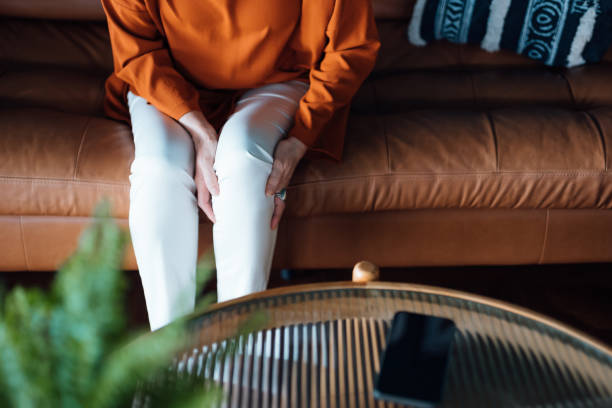 Knee replacement is a common last resort treatment for knee pain caused by osteoarthritis, and rheumatoid arthritis, among others. It involves the surgical removal of all or some of the parts of the knee and replacing them with artificial components. This poses a lot of benefits to sufferers of severe knee pain. In addition to the significant pain relief, it provides improved mobility and quality of life.
Knee replacement is a common last resort treatment for knee pain caused by osteoarthritis, and rheumatoid arthritis, among others. It involves the surgical removal of all or some of the parts of the knee and replacing them with artificial components. This poses a lot of benefits to sufferers of severe knee pain. In addition to the significant pain relief, it provides improved mobility and quality of life.
While knee replacement is an effective treatment for knee pain, not everyone makes a good candidate for a knee replacement. If you are skeptical about being a good candidate for knee replacement, fix an appointment with us today. The following reasons make knee replacement a bad option for you.
Your Knee Pain is Mild
Knee replacement surgeries are advised only for you when your knee pain is between moderate and severe and when your activities of daily living are affected by the pain. Even though knee replacement surgeries are very efficient in managing knee pain caused by arthritis and other bone degenerating conditions, they should not be the first treatment option. Just like every other surgical treatment, knee replacement surgery has its risks and complications. It is important to weigh both the risks and potential benefits before opting for a surgical treatment. If the pain you feel in your knee is mild and endurable, the risk of undergoing a knee replacement outweighs its potential benefits.
 There are several other treatment methods to be considered. Arthritis-relieving medications are effective in treating rheumatoid arthritis and gout. Pain relieving medications also help to deal with knee pain. Another treatment option to be considered is physical therapy. Discuss this option with your doctor if he hasn’t already recommended it. Physical therapy works for knee pain by helping to strengthen the muscles around the knee, thereby reducing the weight borne by the knee and also stabilizing the knee. Exercises prescribed by your physical therapist can also help in correcting wrong movement patterns, and improve flexibility and balance. Your physical therapist can also prescribe knee braces to support your knee and relieve your pain. Other treatment options include corticosteroid injections, hyaluronic acid injections, and platelet-rich plasma (PRP) (1). Self-care measures such as ice, heat, compression, and elevation must also be considered. All these treatment options, alongside the severity of your pain, must be put into consideration before opting for a knee replacement.
There are several other treatment methods to be considered. Arthritis-relieving medications are effective in treating rheumatoid arthritis and gout. Pain relieving medications also help to deal with knee pain. Another treatment option to be considered is physical therapy. Discuss this option with your doctor if he hasn’t already recommended it. Physical therapy works for knee pain by helping to strengthen the muscles around the knee, thereby reducing the weight borne by the knee and also stabilizing the knee. Exercises prescribed by your physical therapist can also help in correcting wrong movement patterns, and improve flexibility and balance. Your physical therapist can also prescribe knee braces to support your knee and relieve your pain. Other treatment options include corticosteroid injections, hyaluronic acid injections, and platelet-rich plasma (PRP) (1). Self-care measures such as ice, heat, compression, and elevation must also be considered. All these treatment options, alongside the severity of your pain, must be put into consideration before opting for a knee replacement.
As a rule of thumb, knee replacement is a bad option for you if your pain is mild, manageable with other treatment methods, and if your knee functions have not been limited to an extent that affects your quality of life.
Active Local or Widespread Infection
When you have an ongoing infection in your knee or widespread infection, knee replacement is contraindicated as a treatment for your knee pain. This is because the infection significantly increases the possibility of developing a complication after surgery. Apart from increasing the risks, it generally reduces the prognosis of the procedure. Just like in every other surgical procedure, infection is already a common complication of knee replacement.
Presence of Some Contraindicating Conditions
You are a bad candidate for a knee replacement if you severely suffer from severe nerve disease or peripheral blood vessel diseases. These diseases together with others such as knee sepsis, active infections, recurvatum deformity secondary to muscular weakness, and extensor mechanism dysfunction greatly increase the risks of developing a complication from the surgical procedure (2). The prognosis and chances of having an overall successful outcome are significantly reduced too. Generally, good overall health favors a positive surgical outcome. If your doctor says you are healthy enough following pre-op assessment, it means you are not a good candidate for knee replacement. This applies to a lot of major surgical procedures too. In such cases, the reason for the current state of health (which could also include medications being used) might have to be addressed first before the knee replacement.
Furthermore, an excessive body weight (mostly over a Body Mass Index of 30) can make you a bad candidate for knee replacement. This is because the weight can be too much for the artificial implant to support. Having fragile skin or severely poor skin coverage over your knee also reduced the prognosis. Knee replacement is out-rightly contraindicated in people with terminal diseases.
Your Knee Symptoms are Not Related to the Joint Disease
The pain and other symptoms you feel around the knee are not always connected to bony or cartilaginous degeneration of the knee joint. This will be confirmed through a thorough assessment by your doctor. To conclude on this, your doctor will carry out an extensive physical examination, ask some questions, and may also suggest imaging tests such as X-ray, Computerized Tomography (CT) scan, ultrasound, and Magnetic Resonance Imaging (MRI).
You are a Smoker
Smokers are not-so-good candidates for knee replacement surgeries (3). This is because smoking significantly delays healing after any kind of surgery, including knee replacements. It is advised that all smoking should be stopped a while before surgery to improve the prognosis of knee replacement surgery. If you are having difficulties quitting smoking, inform your doctor so you can be referred for proper professional help.
What Should I Do If I Am Not a Good Candidate For Knee Replacement?
 As earlier mentioned, there are several other treatment options available to you if you fall into any of the categories above and you feel you do not make a great candidate for knee replacement. However, there are very few absolute contraindications for knee replacement surgeries. The most important thing is having a proper and thorough discussion and consultation with your doctor, weighing the pros and cons, and reaching an informed decision based on all available information. Underlying diseases, conditions, and habits (such as smoking) should be addressed and managed to prevent them from affecting the prognosis of knee replacement.
As earlier mentioned, there are several other treatment options available to you if you fall into any of the categories above and you feel you do not make a great candidate for knee replacement. However, there are very few absolute contraindications for knee replacement surgeries. The most important thing is having a proper and thorough discussion and consultation with your doctor, weighing the pros and cons, and reaching an informed decision based on all available information. Underlying diseases, conditions, and habits (such as smoking) should be addressed and managed to prevent them from affecting the prognosis of knee replacement.
DISCLAIMER: Please, note that all the information provided on the webpage is strictly for informational purposes. This article is not to used as a substitute for any professional medical care – diagnosis, treatment or advice. Please, ensure you seek the advice of your doctor or other healthcare providers if you have any questions or concerns regarding your health.
References
1.https://www.mayoclinic.org/diseases-conditions/knee-pain/diagnosis-treatment/drc-20350855




